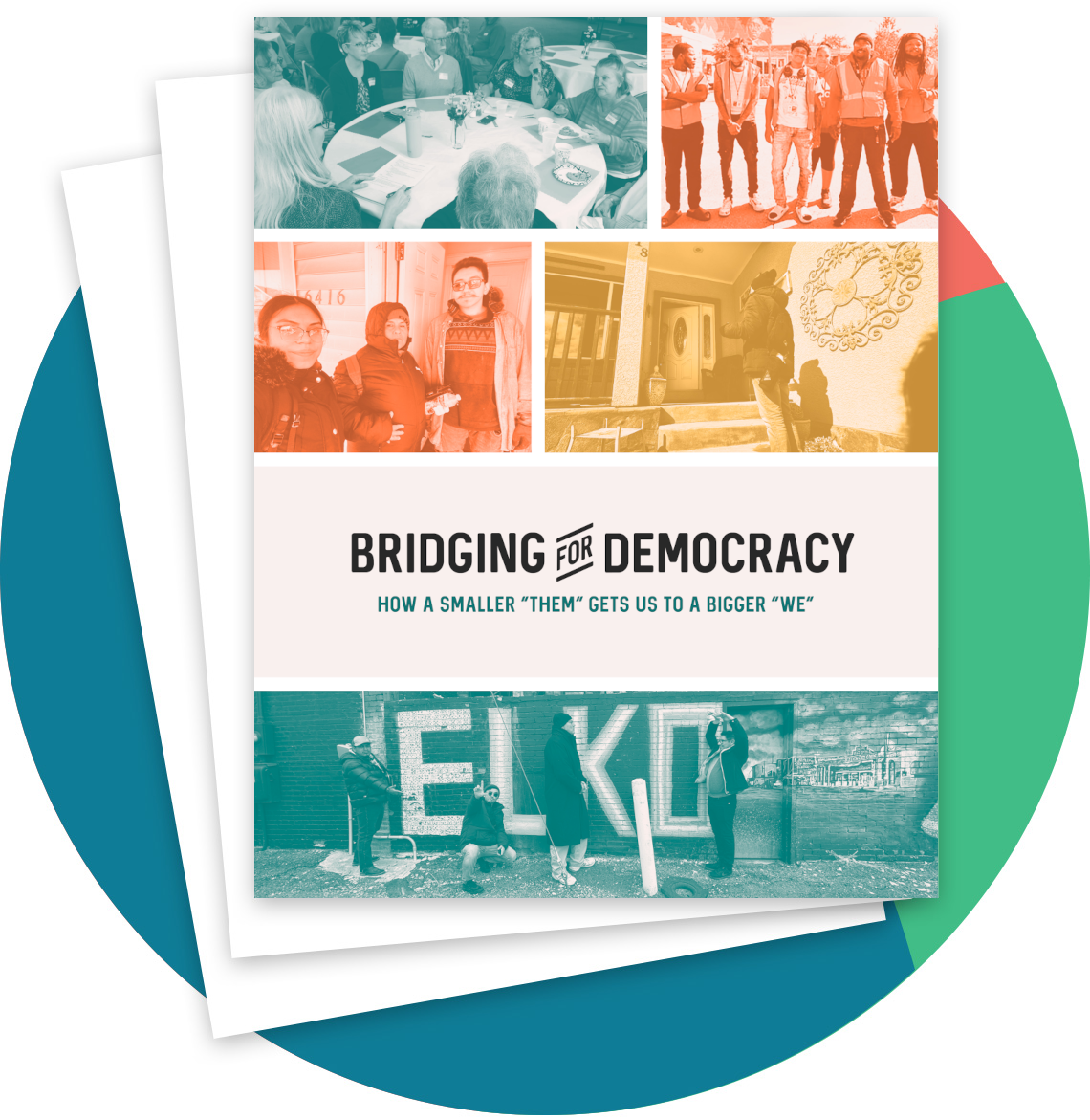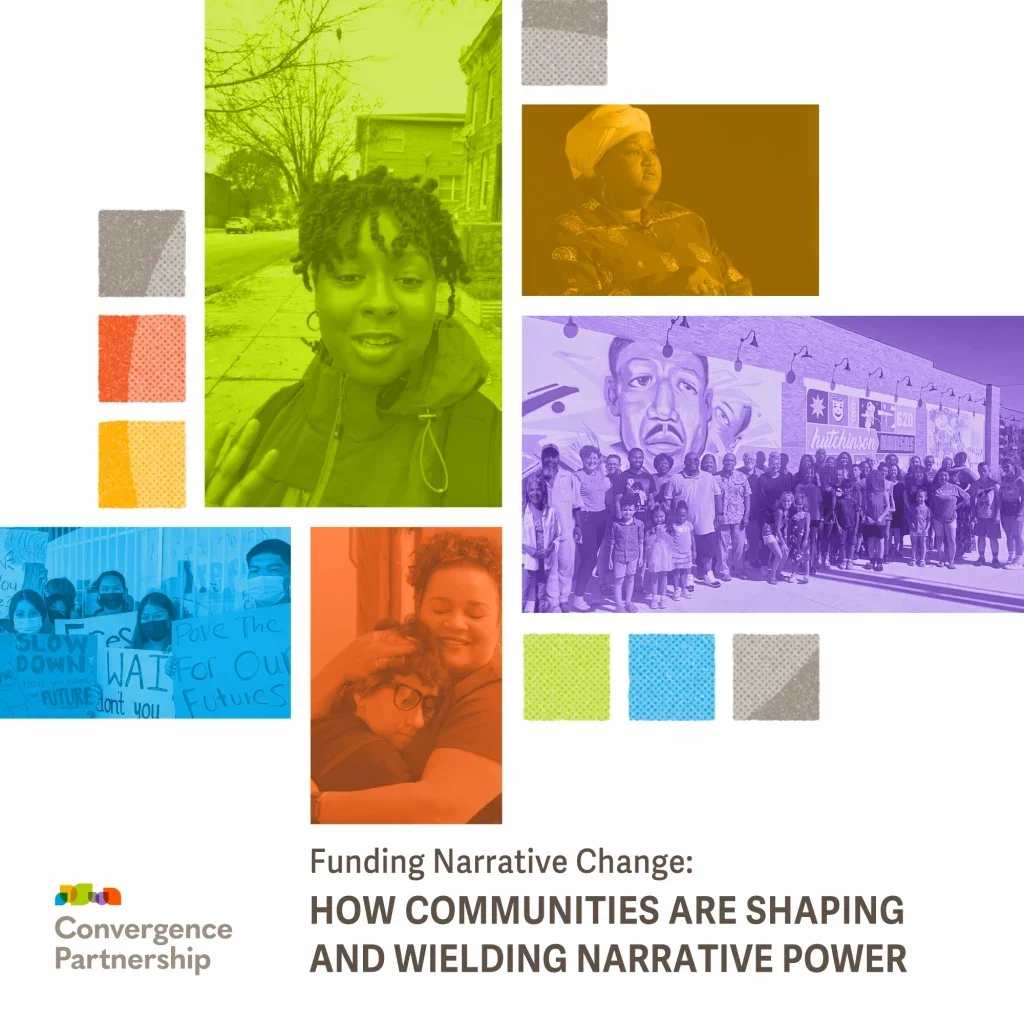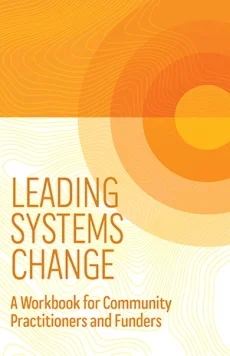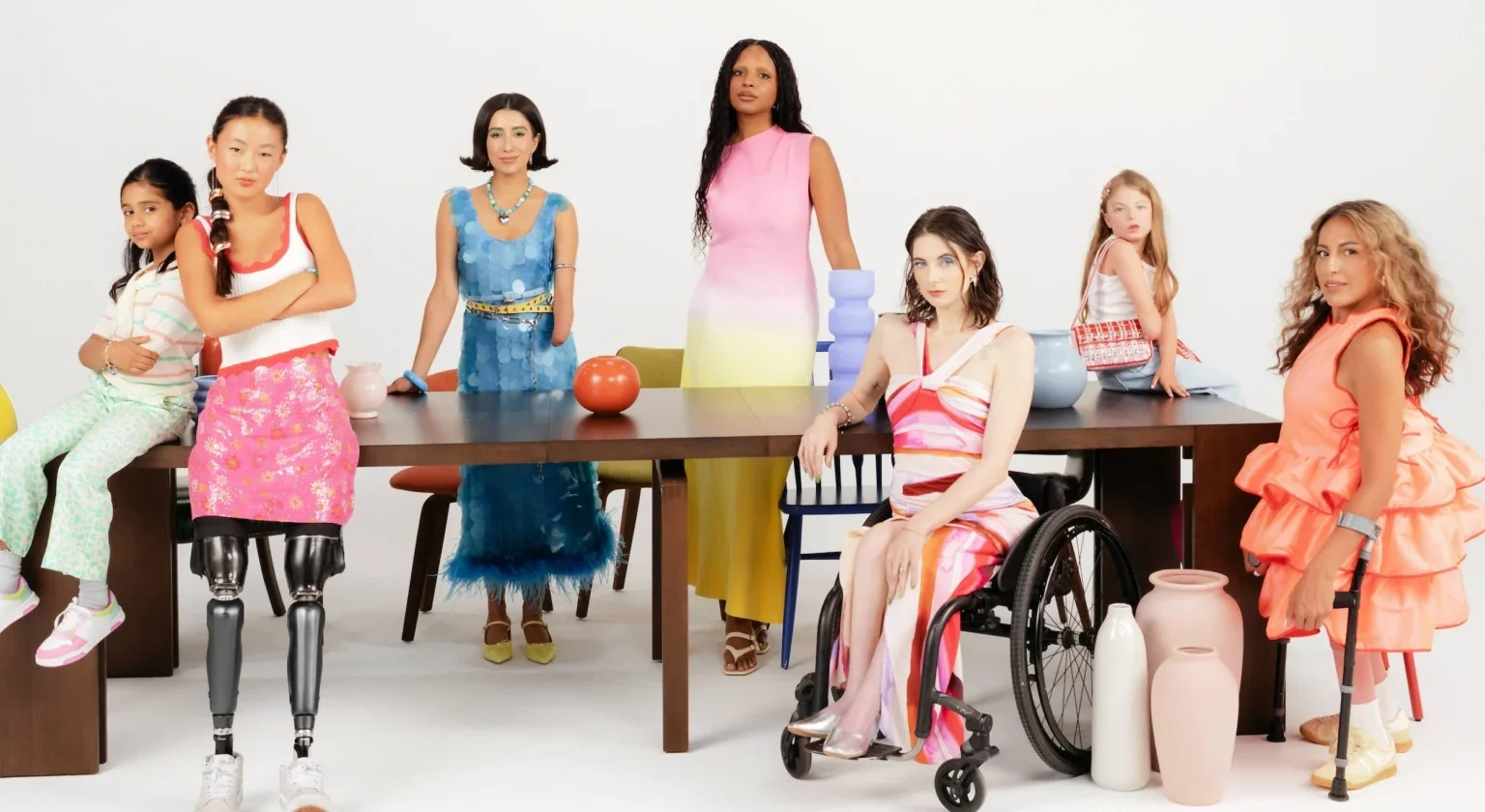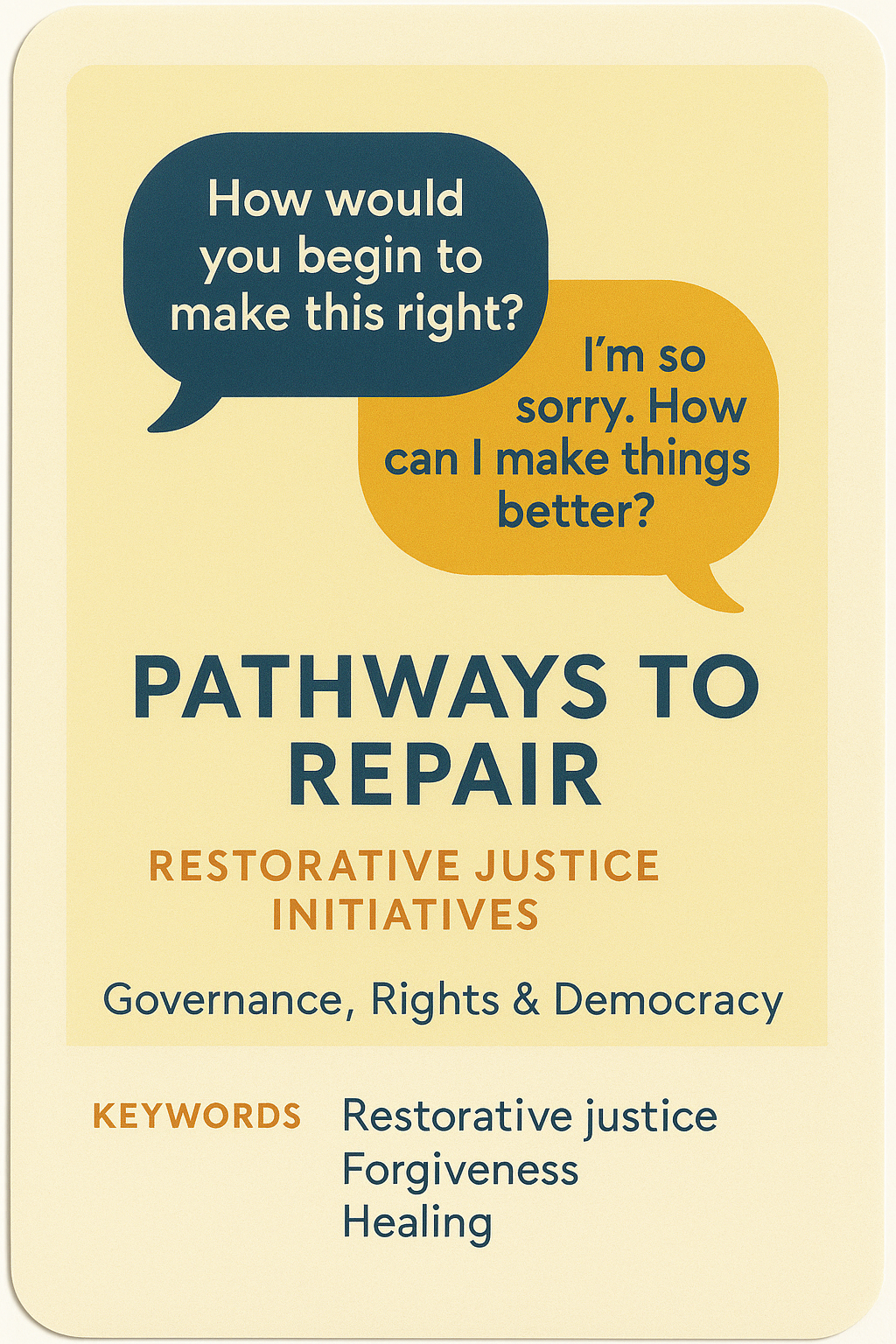
Bridging for Democracy
"Today's growing division and dehumanization cannot just be countered by amassing more forces on one side. We see the act of bridging and listening across differences as critical for the progressive movement to meet this moment."
— Othering and Belonging Institute, UC Berkeley
Measuring Love in the Journey for Justice: A Brown Paper
This paper calls on love as a cure for injustice. It is not a formal research paper. It comes from the heart. It is meant to be used—like love itself. It is meant to start talks and make us think.
Intro to Systems Thinking: The Iceberg Model
What Is Systems Thinking?
Systems thinking is a way of looking at problems that helps you see the whole picture, not just one piece. Instead of asking "What happened?" it asks "Why did this happen?" and "What patterns am I seeing?"
Think about it this way: When you see a traffic jam, you could just be frustrated about the cars in front of you. Or you could ask deeper questions. Why is there always a traffic jam here at 5pm? What about the road design causes this? What beliefs about how people should get to work led to this road being built this way?
Systems thinking helps us move from quick fixes that don't last to real solutions that change things for good.
Funding Narrative Change
Who gets to tell the story of your community? For too long, outside voices have shaped narratives about Black and Brown neighborhoods. But a new wave of grassroots organizations is taking back the pen—and the camera, the podcast mic, and the social media account—to tell their own stories and drive real change.
Why This Matters for Organizers
Stories Drive Change: Narrative power is as important as economic or political power
Tools Are Accessible: You do not need Hollywood budgets—TikTok, podcasts, and community theater work
Community Expertise: Those closest to the problems are best positioned to tell the stories
Proven Strategies: Case studies show what works across different communities
Funder Interest: Philanthropy is increasingly supporting narrative change work
Living room Conversations
"I've experienced a number of times where I found myself thinking, 'Oh I never thought of it that way' or I recognized that someone else's experience opened me up to a new way of seeing that topic. I found myself seeing something for the first time."
— Conversation Participant
The Lilith Fund
Need Help Right Now?
Hotline (English):
877-659-4304
Hotline (Español):
877-355-1461
Text Helpline:
512-872-5656
The Dangerous Mindset Spreading Across America: Cultural Nihilism Among Gen Z
A German thinker named Friedrich Nietzsche had a word for this feeling: "nihilism" (say: NYE-ill-ism). It means believing nothing really matters. But this feeling is now so common among young Americans that experts call it "cultural nihilism."
Warning Signs
Fewer young people trust democracy than ever before
Young people don't trust big institutions like government
Entire online groups are built around being super negative
Young people have stopped believing things can get better
Introducing Potentialism
Why This Matters
For the Exhausted Majority: A vision that transcends left-right polarization and offers practical hope
For Educators: A framework that recognizes both individual potential and structural barriers
For Policy Makers: Cross-partisan appeal with 80% agreement across political parties
For Community Leaders: A shared language for building civic culture beyond divisiveness
For America's Future: A roadmap for reimagining democracy in the 21st century
112525 Charter for Compassion 2.0
A Transformed World
The Charter for Compassion envisions a world where all life flourishes with compassion. Founded by scholar Karen Armstrong after receiving the TED Prize in 2008, the Charter was unveiled on November 12, 2009, with support from thousands of contributors worldwide.
The principle of compassion lies at the heart of all religious, ethical and spiritual traditions—the Golden Rule that calls us to treat others as we wish to be treated. The Charter translates this ancient wisdom into a living, breathing movement for our times.
Good Reason Houston
Every child, in every neighborhood, excels in a world-class public school and thrives in the Houston of tomorrow.
An education backbone organization partnering with Houston-area school districts to accelerate progress by increasing the number of children succeeding in high-quality learning environments.
New Pluralists
We're building a culture of respect and belonging for all. Since 2021, we've invested $33 million in people and groups bringing pluralism to life across America.
Pluralism is a promise and a practice—a choice about who we want to become.
A New National Narrative
Without a shared story built on democratic ideals, public cohesion and collective action weaken. Amid rising polarization and authoritarian threats, a revitalized narrative rooted in civic values provides the social glue and moral framework to sustain democratic governance and shared purpose.
Pathways to Repair
Pathways to Repair offers a dynamic, accessible model for transforming division into dialogue. Through story-based engagements and facilitated discussions, they equip participants to engage with empathy and accountability across lines of difference—including political, racial, and generational divides. In a time of increasing polarization, their work helps build the social cohesion and trust needed to create resilient, equitable communities.

